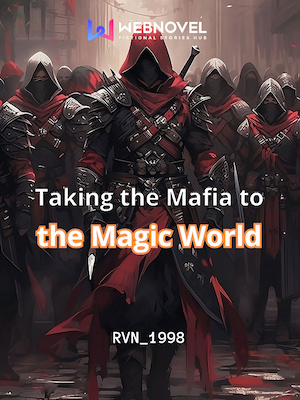Chapter 604: Press
In the Marvel Comics headquarters, except for personnel with special missions such as Arthur Macomb, almost all the top executives gathered in the large conference room.
Avi-Allard, who presided over the meeting, explained the situation in detail at the fastest speed. The meeting room was completely silent. Most people even lowered their breathing a lot. As long as they are not fools, they can understand. Marvel Comics It has reached the critical moment of life and death.
"Is this irretrievable?" CEO Huo De Na asked.
Avi-Allard said: "I contacted all the senior Citibank executives I knew, and the answers were all no. In addition, I asked many friends to lobby, and the feedback was all negative news for the time being."
He added: "The Public Relations Department and the Legal Department have temporarily put aside other tasks, and all their power is concentrated on Citibank."
Isaac Perlmutter, president of Marvel Comics, asked: "How likely is the change?"
Avi-Allard said directly: "We have to prepare for the worst."
As for the performance of Marvel in the past few years, everyone here knows well that Citibank really wants to draw out loans and also act in accordance with the contract.
At this time, creative director Mark Du Rude asked: "Do we have no other way to raise a $40 million loan? Marvel still has a lot of assets?"
An executive nearby said: "Unless we sell the headquarters and surrounding toy factories, we cannot raise 40 million US dollars."
Isaac Perlmutter was the first to object: "Sell these two parts, and even if Marvel overcomes this difficulty, it can only wait to die."
Avi-Allard stated: "I would rather go legal with Citibank than sell Marvel's final capital."
"Can you borrow from other financial institutions?" someone asked.
The director of the finance department said: "If we can raise funds, we will not be like this."
"Has the news of Citibank's lending spread?" said another senior executive in his 30s. "Once it spreads, our stock price will plummet again."
Someone murmured: "After the failure of the "Hulk" movie, it fell below the listing price and there is not much room for a drop."
Others were speechless. They had fallen miserably before, and the shares seemed to be valuable in their hands. The company could not make a profit without dividends, and could not sell.
In 1993, when the comics industry was at its last glory, Marvel’s single share price was as high as US$35.75. Then the comics industry entered a cold winter. The annual sales of comics fell at a rate of more than 70%. By 1998, the stock price had fallen to less than 2.3. Dollar.
After the box office sales of "Spider-Man", Marvel's stock price rose slightly, slowly exceeding US$2.5, and it was close to US$3 when the box office of "Spider-Man" reached US$800 million worldwide.
However, the failures of "Dare Too" and "Hulk" knocked out the hope of the revival of Marvel comics. Today, the single share price of Marvel is only $2.17.
There is no market, because the trading volume has been terribly low for several consecutive months.
Even if it drops to one dollar, Marvel's executives and shareholders are already mentally prepared.
With the long conference table near the end, Maxwell of the Copyright Department has been observing the changes in the conference room, waiting for the most suitable opportunity.
He is a small shareholder of Marvel Comics. Someone has contacted him in the past two days and wants to buy his shares at the market price three days ago.
Although it is less than one percent, it also involves millions of dollars.
It is inevitable that the stock price of Marvel Comics will plummet, and the news of Citibank’s loan draw will surely circulate.
Moreover, this matter is obviously not simple.
Several colleagues have spoken one after another. Maxwell saw that the time was about to come and said, "There are still thousands of character copyrights in our copyright library. Can't you think of something about them?"
Anyway, my own sons have sold so much, and no one will resist selling more godsons.
Isaac Perlmutter said: "If we can use those ordinary characters to exchange funds, we would have mortgaged the loan. The problem now is that no one will buy or mortgage the copyright of these characters at a price that satisfies us."
Avi-Allard said: "We have contacted hundreds of companies and financial institutions in the past two years, but some people offered prices, but hundreds of thousands of dollars..."
He didn't continue to say, just shook his head.
Maxwell did not give up, saying: "I remember that in the past two years, Ronan Anderson and Shahai Entertainment in Hollywood bought the copyrights of many superhero characters from us. Many of them can only be regarded as third-tier heroes. Copyright is very interested, why should we stop contacting him?"
Avi Allard said: "Last year I mentioned this to Ronan Anderson and Robert Lee, and they rejected it."
Others also know this, and it is normal to be rejected because Marvel is asking for a higher price.
Maxwell added: "I think we can lower the price appropriately, and then get in touch with Relativity Entertainment."
Isaac Perlmutter heard this and said: "In recent years, the company with the best relationship with Marvel Comics is Relativity Entertainment."
Creative Director Mark Du Rude said: "I think we can try to get in touch. Even if Relativity Entertainment refuses, we will not be worse than we are now."
Seeing a few colleagues agree, Maxwell said: "In this situation, it is always the same way."
Avi-Allard nodded slowly: "I will find a way to get in touch with Relativity Entertainment."
The meeting lasted until the afternoon, and the feedback from all parties was bad news, and the news of Citibank’s loan from Marvel spread unsurprisingly, and Marvel’s stock price, which had fallen to the bottom, fell into the abyss again. go with.
Marvel has also begun to prepare many hands. Some people work for Citibank, some are looking for new investors, and some are preparing for bankruptcy protection.
Avi Allard personally contacted Robert Lee and Ronan, but did not get a clear reply. The answer they gave him was that it took time to consider.
This is not beyond Avi Allard's expectation. With Citibank borrowing, Marvel comics will become a complete mess.
Even, he didn't know how confident he was to negotiate deals with a large company like Relativity Entertainment.
On the fifth day after the Citibank loan notice was delivered, Marvel Comics’ stock price fell to $1.15, and the total market value fell below $500 million.
This also created the lowest market value of Marvel after Perelman spent US$82.5 million in 1989 to acquire Marvel from New World Pictures and go public.
Moreover, this record is still falling.
Avi Allard knows that Marvel desperately needs a fund to revive it.
But he himself didn't remember that Marvel found a few funds, but in the end he never resurrected.
Ronan lives on the other side of the Pacific and has seen the news, and it is "Iron Man" that really brought Marvel back to life.
In addition, the comic industry began to gradually recover after 2005. A comic released by Marvel Comics in 2006 can be said to have reversed the predicament that its superhero comics cannot be sold.
The comic used to be called "Civil War"!
But now in Marvel, "Civil War" hasn't even the idea to appear.
As for movies, Marvel, the copyright of mortgage funds, is gone...
After get off work on the fifth day, Avi-Allard received a call and a former partner asked him to meet him as an intermediary.
In a clubhouse on Seventh Avenue, Avi-Allard met the partner.
"Avi, this is Sean Downey, from Los Angeles, currently working for 20th Century Fox." The partner introduced both parties: "Sean, this is Avi Allard, Marvel Comics The chairman and CEO of Marvel is also the largest shareholder of Marvel."
After the handshake between the two parties, the partner said: "You talk, I have something to do, come back later."
Hearing that Sean was from 20th Century Fox, Avi Allard couldn't help but think of Arthur Macomb in Los Angeles, and asked directly: "I don't know if Mr. Downey is looking for me, what's the matter?"
Sean Downey is also very direct: "Some time ago, Mr. Macomb of your company found Twentieth Century Fox and asked to modify the copyright agreement between Fox and Marvel regarding "X-Men" and "Fantastic Four". I am here today for this."
Avi Allard said: "Arthur Macomb can represent Marvel with full authority. Mr. Downey doesn't need to go to New York again."
Sean Downey looked grim: "Arthur Macomb can't decide this matter. Twentieth Century Fox believes that it is very necessary to communicate with Mr. Allard first. This is conducive to our future cooperation."
Avi-Allard looked equally serious: "The copyright agreement of "Fantastic Four" was signed with 20th Century Fox when Perelman was in office. The agreement lacks the most basic contractual fairness. Marvel’s The request is very reasonable and not excessive, otherwise we will not negotiate with Fox, but will take Fox to court in the name of illegally stealing the proceeds of the goods."
"You misunderstood what I meant." Sean Downey didn't soften it at all. "I'm here today. Although I'm talking about the copyright agreement between "X-Men" and "Fantastic Four", the content is another matter. "
Avi Allard stared closely at Sean Downey, and even if the internal was no longer virtual, he still seemed tough externally: "I think Marvel should take back all the derivative sales rights of these two series."
Sean Downey didn't answer his words at all, and said nonchalantly: "I am here to negotiate with Mr. Allard to revise the copyright agreement of the "X-Men" series."
Avi-Allard's eyes narrowed: "How does Fox want to modify."
"Refer to "Fantastic Four" for specific terms. Marvel no longer has the right to 5% of the later revenue sharing of the "X-Men" series." Sean Downey said easily: "In addition, any For comics and characters related to "X-Men", Twentieth Century Fox automatically acquired the rights to film and television..."
Avi-Allard, who presided over the meeting, explained the situation in detail at the fastest speed. The meeting room was completely silent. Most people even lowered their breathing a lot. As long as they are not fools, they can understand. Marvel Comics It has reached the critical moment of life and death.
"Is this irretrievable?" CEO Huo De Na asked.
Avi-Allard said: "I contacted all the senior Citibank executives I knew, and the answers were all no. In addition, I asked many friends to lobby, and the feedback was all negative news for the time being."
He added: "The Public Relations Department and the Legal Department have temporarily put aside other tasks, and all their power is concentrated on Citibank."
Isaac Perlmutter, president of Marvel Comics, asked: "How likely is the change?"
Avi-Allard said directly: "We have to prepare for the worst."
As for the performance of Marvel in the past few years, everyone here knows well that Citibank really wants to draw out loans and also act in accordance with the contract.
At this time, creative director Mark Du Rude asked: "Do we have no other way to raise a $40 million loan? Marvel still has a lot of assets?"
An executive nearby said: "Unless we sell the headquarters and surrounding toy factories, we cannot raise 40 million US dollars."
Isaac Perlmutter was the first to object: "Sell these two parts, and even if Marvel overcomes this difficulty, it can only wait to die."
Avi-Allard stated: "I would rather go legal with Citibank than sell Marvel's final capital."
"Can you borrow from other financial institutions?" someone asked.
The director of the finance department said: "If we can raise funds, we will not be like this."
"Has the news of Citibank's lending spread?" said another senior executive in his 30s. "Once it spreads, our stock price will plummet again."
Someone murmured: "After the failure of the "Hulk" movie, it fell below the listing price and there is not much room for a drop."
Others were speechless. They had fallen miserably before, and the shares seemed to be valuable in their hands. The company could not make a profit without dividends, and could not sell.
In 1993, when the comics industry was at its last glory, Marvel’s single share price was as high as US$35.75. Then the comics industry entered a cold winter. The annual sales of comics fell at a rate of more than 70%. By 1998, the stock price had fallen to less than 2.3. Dollar.
After the box office sales of "Spider-Man", Marvel's stock price rose slightly, slowly exceeding US$2.5, and it was close to US$3 when the box office of "Spider-Man" reached US$800 million worldwide.
However, the failures of "Dare Too" and "Hulk" knocked out the hope of the revival of Marvel comics. Today, the single share price of Marvel is only $2.17.
There is no market, because the trading volume has been terribly low for several consecutive months.
Even if it drops to one dollar, Marvel's executives and shareholders are already mentally prepared.
With the long conference table near the end, Maxwell of the Copyright Department has been observing the changes in the conference room, waiting for the most suitable opportunity.
He is a small shareholder of Marvel Comics. Someone has contacted him in the past two days and wants to buy his shares at the market price three days ago.
Although it is less than one percent, it also involves millions of dollars.
It is inevitable that the stock price of Marvel Comics will plummet, and the news of Citibank’s loan draw will surely circulate.
Moreover, this matter is obviously not simple.
Several colleagues have spoken one after another. Maxwell saw that the time was about to come and said, "There are still thousands of character copyrights in our copyright library. Can't you think of something about them?"
Anyway, my own sons have sold so much, and no one will resist selling more godsons.
Isaac Perlmutter said: "If we can use those ordinary characters to exchange funds, we would have mortgaged the loan. The problem now is that no one will buy or mortgage the copyright of these characters at a price that satisfies us."
Avi-Allard said: "We have contacted hundreds of companies and financial institutions in the past two years, but some people offered prices, but hundreds of thousands of dollars..."
He didn't continue to say, just shook his head.
Maxwell did not give up, saying: "I remember that in the past two years, Ronan Anderson and Shahai Entertainment in Hollywood bought the copyrights of many superhero characters from us. Many of them can only be regarded as third-tier heroes. Copyright is very interested, why should we stop contacting him?"
Avi Allard said: "Last year I mentioned this to Ronan Anderson and Robert Lee, and they rejected it."
Others also know this, and it is normal to be rejected because Marvel is asking for a higher price.
Maxwell added: "I think we can lower the price appropriately, and then get in touch with Relativity Entertainment."
Isaac Perlmutter heard this and said: "In recent years, the company with the best relationship with Marvel Comics is Relativity Entertainment."
Creative Director Mark Du Rude said: "I think we can try to get in touch. Even if Relativity Entertainment refuses, we will not be worse than we are now."
Seeing a few colleagues agree, Maxwell said: "In this situation, it is always the same way."
Avi-Allard nodded slowly: "I will find a way to get in touch with Relativity Entertainment."
The meeting lasted until the afternoon, and the feedback from all parties was bad news, and the news of Citibank’s loan from Marvel spread unsurprisingly, and Marvel’s stock price, which had fallen to the bottom, fell into the abyss again. go with.
Marvel has also begun to prepare many hands. Some people work for Citibank, some are looking for new investors, and some are preparing for bankruptcy protection.
Avi Allard personally contacted Robert Lee and Ronan, but did not get a clear reply. The answer they gave him was that it took time to consider.
This is not beyond Avi Allard's expectation. With Citibank borrowing, Marvel comics will become a complete mess.
Even, he didn't know how confident he was to negotiate deals with a large company like Relativity Entertainment.
On the fifth day after the Citibank loan notice was delivered, Marvel Comics’ stock price fell to $1.15, and the total market value fell below $500 million.
This also created the lowest market value of Marvel after Perelman spent US$82.5 million in 1989 to acquire Marvel from New World Pictures and go public.
Moreover, this record is still falling.
Avi Allard knows that Marvel desperately needs a fund to revive it.
But he himself didn't remember that Marvel found a few funds, but in the end he never resurrected.
Ronan lives on the other side of the Pacific and has seen the news, and it is "Iron Man" that really brought Marvel back to life.
In addition, the comic industry began to gradually recover after 2005. A comic released by Marvel Comics in 2006 can be said to have reversed the predicament that its superhero comics cannot be sold.
The comic used to be called "Civil War"!
But now in Marvel, "Civil War" hasn't even the idea to appear.
As for movies, Marvel, the copyright of mortgage funds, is gone...
After get off work on the fifth day, Avi-Allard received a call and a former partner asked him to meet him as an intermediary.
In a clubhouse on Seventh Avenue, Avi-Allard met the partner.
"Avi, this is Sean Downey, from Los Angeles, currently working for 20th Century Fox." The partner introduced both parties: "Sean, this is Avi Allard, Marvel Comics The chairman and CEO of Marvel is also the largest shareholder of Marvel."
After the handshake between the two parties, the partner said: "You talk, I have something to do, come back later."
Hearing that Sean was from 20th Century Fox, Avi Allard couldn't help but think of Arthur Macomb in Los Angeles, and asked directly: "I don't know if Mr. Downey is looking for me, what's the matter?"
Sean Downey is also very direct: "Some time ago, Mr. Macomb of your company found Twentieth Century Fox and asked to modify the copyright agreement between Fox and Marvel regarding "X-Men" and "Fantastic Four". I am here today for this."
Avi Allard said: "Arthur Macomb can represent Marvel with full authority. Mr. Downey doesn't need to go to New York again."
Sean Downey looked grim: "Arthur Macomb can't decide this matter. Twentieth Century Fox believes that it is very necessary to communicate with Mr. Allard first. This is conducive to our future cooperation."
Avi-Allard looked equally serious: "The copyright agreement of "Fantastic Four" was signed with 20th Century Fox when Perelman was in office. The agreement lacks the most basic contractual fairness. Marvel’s The request is very reasonable and not excessive, otherwise we will not negotiate with Fox, but will take Fox to court in the name of illegally stealing the proceeds of the goods."
"You misunderstood what I meant." Sean Downey didn't soften it at all. "I'm here today. Although I'm talking about the copyright agreement between "X-Men" and "Fantastic Four", the content is another matter. "
Avi Allard stared closely at Sean Downey, and even if the internal was no longer virtual, he still seemed tough externally: "I think Marvel should take back all the derivative sales rights of these two series."
Sean Downey didn't answer his words at all, and said nonchalantly: "I am here to negotiate with Mr. Allard to revise the copyright agreement of the "X-Men" series."
Avi-Allard's eyes narrowed: "How does Fox want to modify."
"Refer to "Fantastic Four" for specific terms. Marvel no longer has the right to 5% of the later revenue sharing of the "X-Men" series." Sean Downey said easily: "In addition, any For comics and characters related to "X-Men", Twentieth Century Fox automatically acquired the rights to film and television..."







